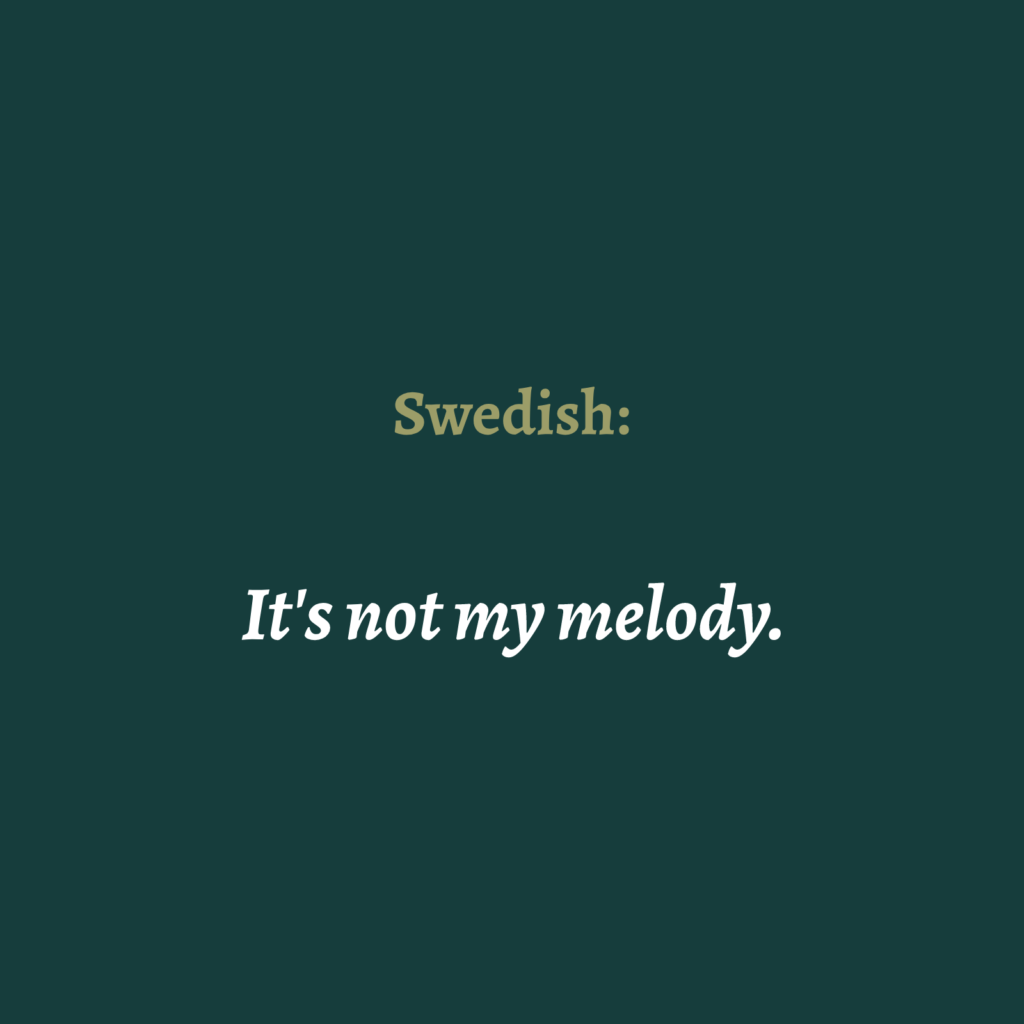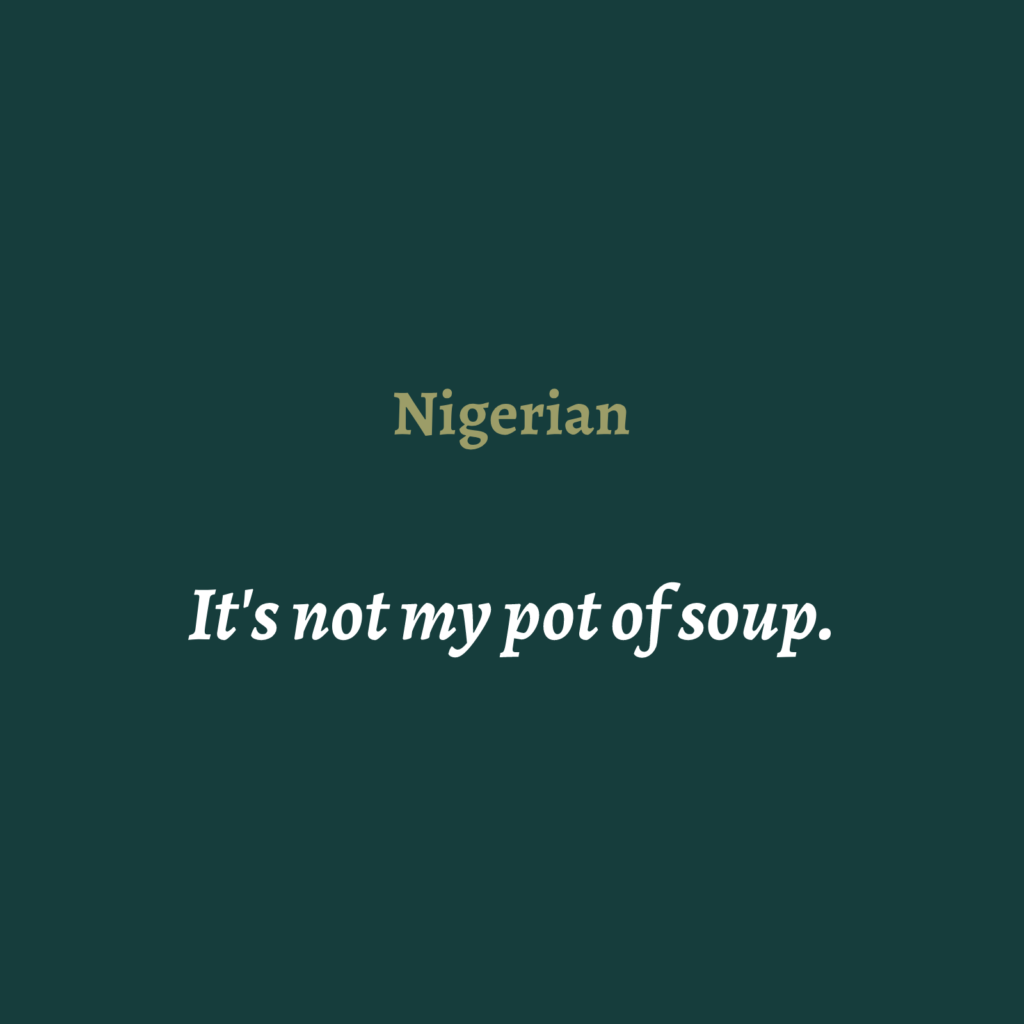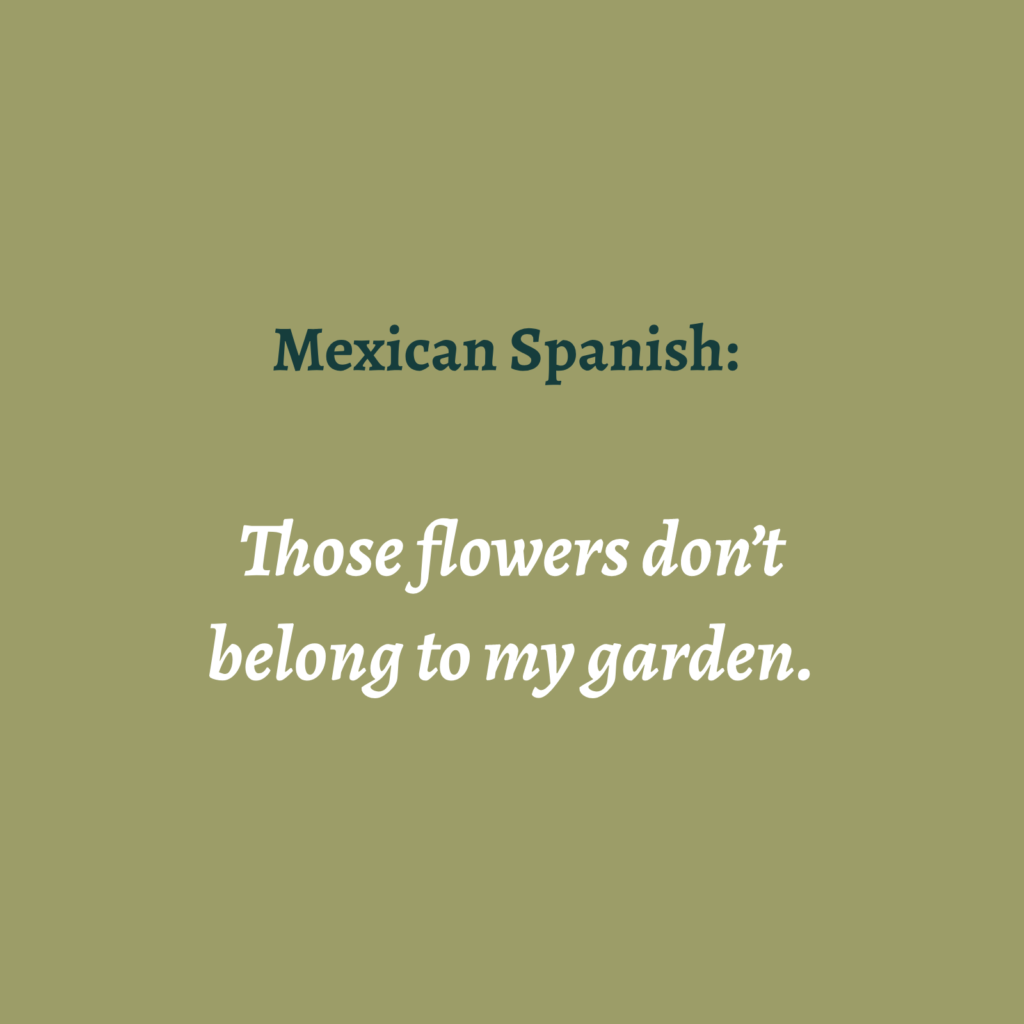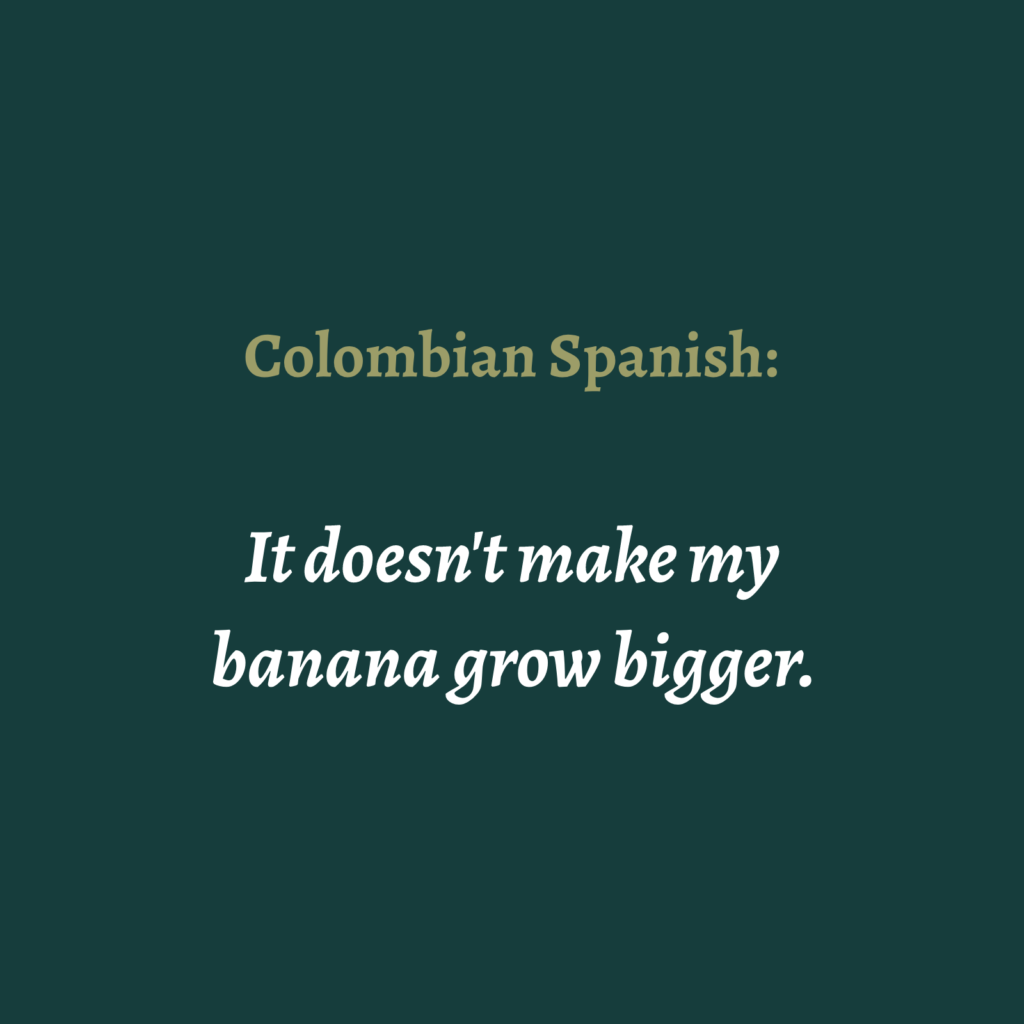People around the world may say the same thing, but they have their own unique way of saying it. It’s like having different flavors of ice cream – vanilla, chocolate, and strawberry, each with its own taste. In languages, these unique ways of expressing things are called idioms. For example, when it’s raining a lot, English speakers might say “it’s raining cats and dogs,” while in Spanish, they might say “está lloviendo a cántaros,” which means it’s raining buckets. Even though the words are different, everyone understands it’s pouring rain. It’s like having different secret codes for the same message, making language a colorful and interesting part of our global community.
Another interesting idiom that is expressed in different ways across the world is “It doesn’t float my boat”. The variety of this expression in different languages is fascinating. Let’s explore them below.
1. British English 🇬🇧

2. Polish 🇵🇱

3. Swedish 🇸🇪

4. French 🇫🇷

Learning idioms in a foreign language is like finding the special keys to unlock the heart of that language. It’s not just about knowing the words – it’s about understanding how people express themselves in a way that’s unique to them. Imagine being in a conversation and someone says, “It’s a piece of cake!” In English, that means something is really easy, but it might sound strange if you take it literally. So, learning idioms helps you connect with people and grasp the true meaning behind their words. It’s like having a secret codebook that opens doors to deeper conversations and cultural understanding. So, don’t be afraid to dive into the world of idioms – it’s the key to speaking a language like a local!
5. Italian 🇮🇹

6. Romanian 🇷🇴

7. Danish 🇩🇰

8. German 🇩🇪

9. Hungarian 🇭🇺

While regular words have clear meanings, idioms often have hidden meanings that aren’t obvious. This makes them a bit tricky for language learners. Imagine trying to understand why someone says “spill the beans” when they mean to reveal a secret – it’s not about literal beans! Idioms often rely on cultural context and experiences, making them challenging for newcomers. However, mastering idioms is like unlocking a new level in language proficiency. It takes time and practice, but once you get the hang of it, you’ll find yourself speaking the language more naturally and connecting better with native speakers. So, don’t be discouraged by the initial challenge – tackling idioms is a rewarding step towards fluency!
10. Greek 🇬🇷

11. Nigerian 🇳🇬

12. Mexican Spanish 🇲🇽

13. Colombian Spanish 🇨🇴

14. Cantonese 🇭🇰

15. Mandarin 🇨🇳

16. Brazilian Portuguese 🇧🇷

17. Venezuelan Spanish 🇻🇪

18. Czech Republic 🇨🇿

19. Spanish 🇪🇸

20. Mongolian 🇲🇳

21. Argentinian Spanish 🇦🇷





